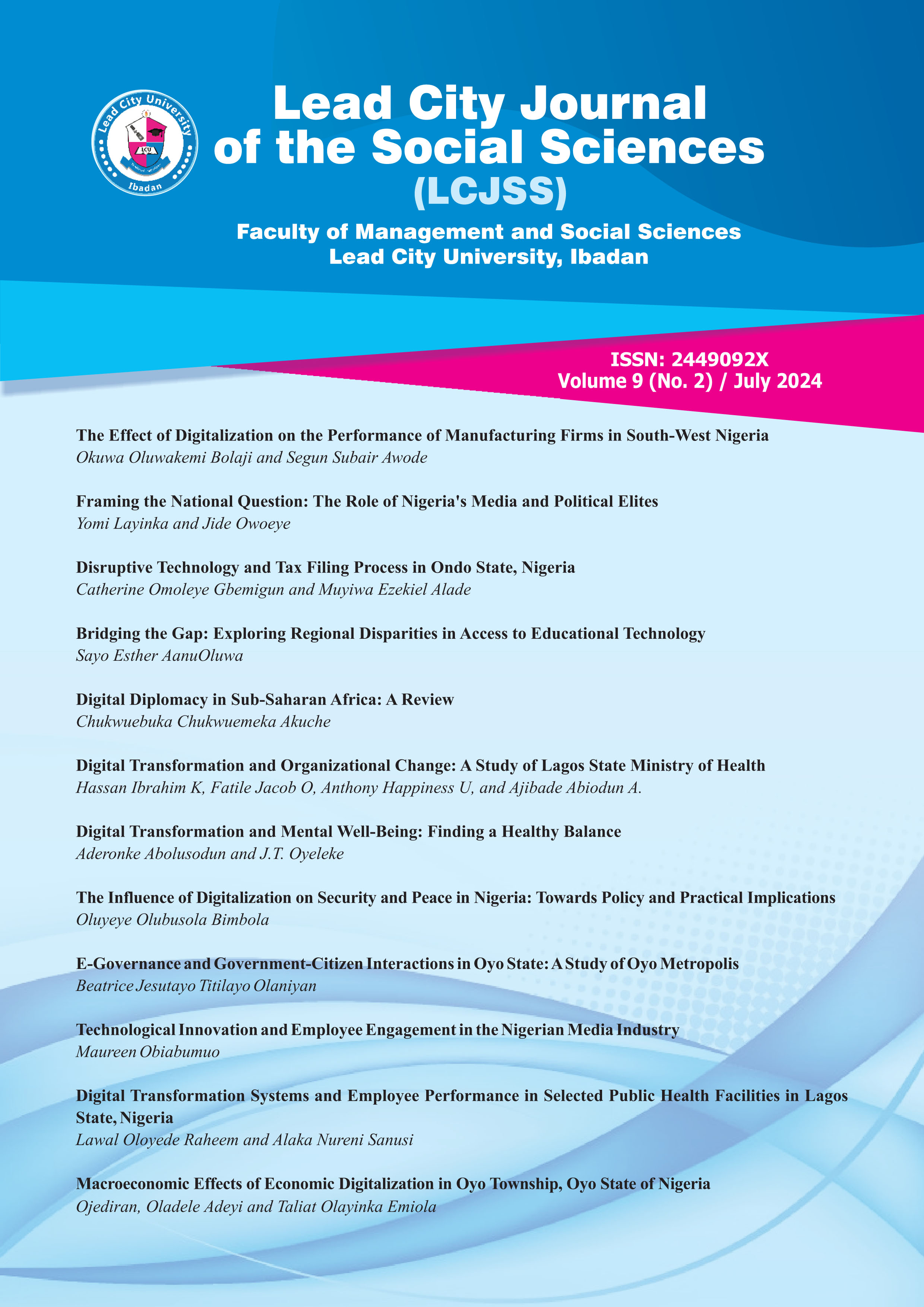Disruptive Technology and Tax Filing Process in Ondo State, Nigeria
Keywords:
Tax filling, Artificial intelligence, Big data, Block chain and Cloud computingAbstract
The inability of taxpayers to file their taxes effectively and flaws in the tax system have been
perceived as the main reason behind the failure of the taxpayers to submit correct and accurate
tax returns the relevant tax authorities in a manner prescribed by law and in accordance with the
laid down administrative procedure. Prior studies have attributed these anomalies to the
inefficient use of information technology and incompetent tax officials. Therefore, this study
investigated the effect of disruptive technology on tax filing process in Nigeria. The study
adopted a quasi-experimental research by employing survey research design. Primary data were
collected through an online survey questionnaire. The population comprised 789 management
and administrative staff of both FIRS (302) and ODIRS (487) in Ondo State offices. The sample
was determined through Taro Yamane sampling approach. The results showed that the model is
significant at 0.05 level and the coefficients are different from zero having a Wald chi2 (4) of
13.75. AI, big data and cloud computing present positive effects while blockchain demonstrates
negative effect on tax filing process, but the results are only significant for AI, BCT and CCT.
The study concluded that disruptive technology is capable of creating a new market for tax filing
in Nigeria through tax automated. The study thereby recommended that for a proper tax filing
process, the government should ensure that tax filing is handled by professionals and trained
personnel to bring the best in them and also instill discipline in them.

